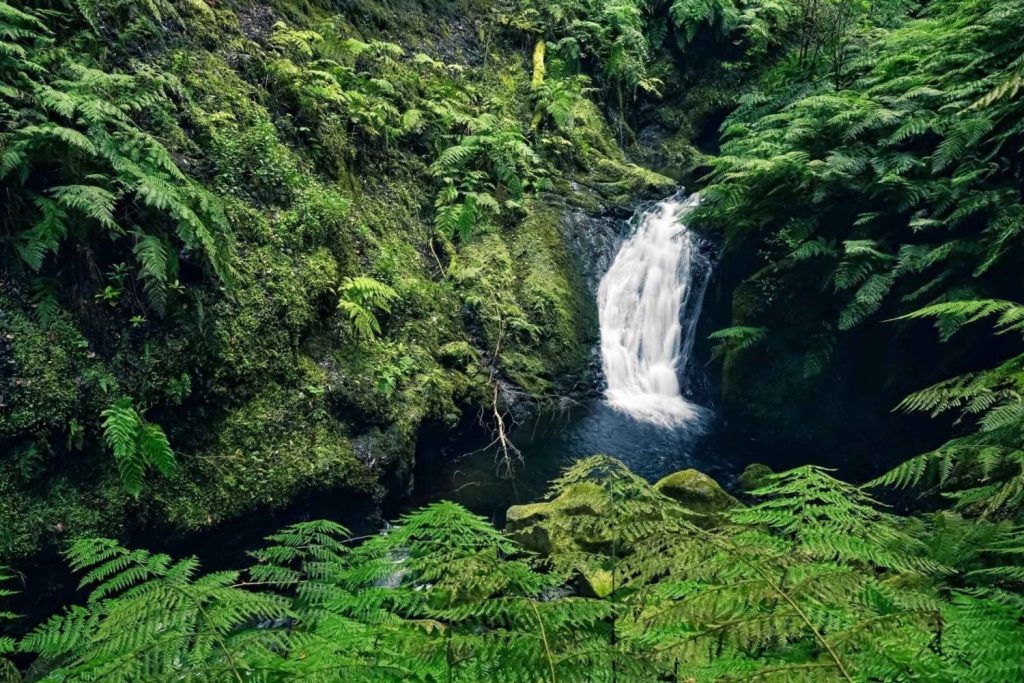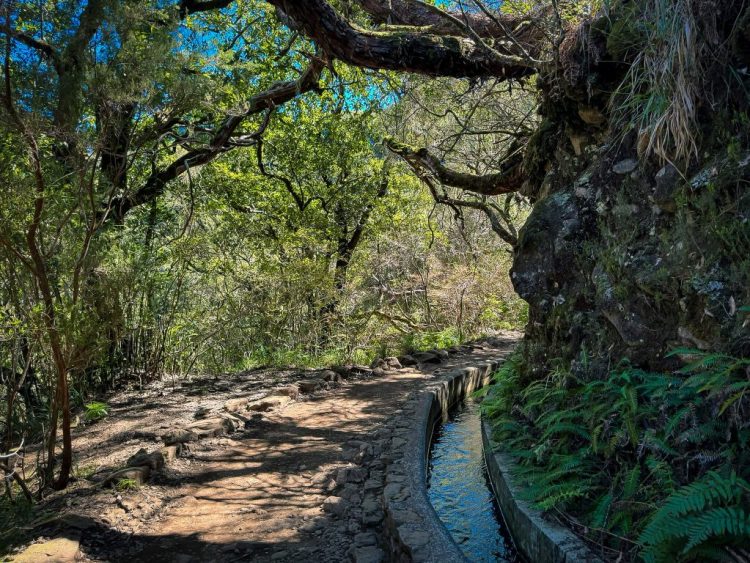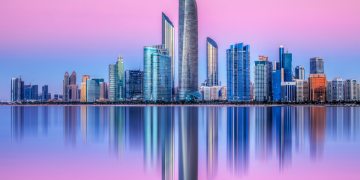Madeira is often dubbed the Hawaii of Europe, a volcanic Atlantic island draped in lush laurel forests, misty peaks, and craggy coastline. For years, it’s drawn seasoned hikers with its unique network of levadas—irrigation channels that double as narrow walking paths through its mountainous interior. But in 2025, with the boom in digital nomads and adventure influencers, the island’s most iconic trails—like the route from Pico do Arieiro to Pico Ruivo or the walk to the 25 Fontes waterfalls—are increasingly trafficked and heavily photographed. The hashtag-laden footfall is undeniable. Yet, beyond the Instagram circuit, Madeira still guards secrets. There are lesser-known trails that cut through primeval forests, skirt cliffside paths above the roaring Atlantic, and tunnel beneath ancient rock. These routes remain blissfully underexposed, perfect for hikers who prefer moss to filters and fog to fanfare. Here’s your guide to Madeira’s hidden hikes, plus essential trail conditions, seasonal tips, and where to stay nearby without sacrificing the solitude you’re chasing.
Levada do Rei to Ribeiro Bonito: Green Cathedral Silence
Nestled in the north of the island near São Jorge, Levada do Rei is often overlooked in favor of more photogenic spots. But for hikers seeking immersion in the UNESCO-protected Laurisilva forest, this route delivers pure, atmospheric magic. The trail gently follows the levada through a natural tunnel of overgrown ferns, dripping moss, and laurel trees that filter light into cathedral-like shafts. At its endpoint, Ribeiro Bonito—literally “beautiful stream”—emerges like a hidden clearing where native birds flutter above untouched flora.
This hike remains quiet even in high season due to its modest trailhead signage and less aggressive marketing. The out-and-back trail is approximately 10 kilometers roundtrip with minimal elevation gain, making it suitable for intermediate hikers who don’t mind wet, uneven ground. Sturdy hiking shoes with grip are essential year-round, as the path can become slick with moisture from the surrounding vegetation.
Nearby, the eco-lodge Quinta do Furão offers sustainable accommodation with views over cliffs and vineyards, plus local wine tastings and easy trail shuttle options for guests.
Vereda da Rocha do Navio: Sea Cliffs Without Crowds
Most coastal walkers head toward Ponta de São Lourenço, Madeira’s well-known eastern cape. But on the northern coast near Santana lies the dramatic Vereda da Rocha do Navio, a short but vertiginous trail that descends from the cliffs to a remote shoreline only reachable by foot or cable car.
The trail is just under 1.5 kilometers each way, but its steep incline and rough-hewn stone steps demand careful footwork. The payoff? A striking descent through terraced banana groves and seabird nests with views of volcanic outcrops rising from the sea. At the bottom, an old fishermen’s village offers a windswept sense of time paused.
This trail is rarely geo-tagged on Instagram due to its challenging access and lack of crowd-luring landmarks—no arches, no waterfalls, just raw Atlantic isolation. Conditions are best from April to October when sea mists lift more consistently, though early mornings in any season reward hikers with low light, crashing waves, and no fellow trekkers.
Accommodations in nearby Santana offer traditional Madeiran thatched-roof cottages, and some local guides organize early hikes to avoid fog cover or combine it with cultural visits to local rum distilleries.
Levada Fajã do Rodrigues: Tunnel Hike for the Claustrophobic and Curious
The Levada Fajã do Rodrigues is one of Madeira’s most underappreciated trail gems, stretching from São Vicente deep into the northwest forest. The trail’s claim to uniqueness lies in its tunnel system—dozens of them, some long and low, requiring headlamps and ducked heads for long stretches. For some, this is thrilling. For others, borderline terrifying. But one thing is guaranteed: solitude.
Spanning roughly 8 kilometers roundtrip, the levada follows ancient irrigation paths and ends in a moss-covered ravine with a waterfall that feels entirely separate from the outside world. These tunnels served practical agricultural purposes but now create a cinematic hiking experience that combines technical challenge and a sense of timeless wonder.
Headlamps, waterproof jackets, and non-slip boots are mandatory gear here. Even in dry season, dripping ceilings and flowing water underfoot can make this hike tricky. But for those who enjoy sensory immersion and a touch of cave explorer drama, this trail offers a visceral contrast to Madeira’s more polished walks.
For rustic eco-friendly lodging, look into guesthouses in the Encumeada region, where wooden cabins sit at the junction of northern and southern microclimates, offering good recovery spots and panoramic stargazing away from town lights.
Chão da Ribeira to Fanal: Madeira’s Fog Forest Without the Crowds
Fanal Forest is widely photographed for its twisted, ancient Ocotea trees that look like something from a fantasy novel. But most visitors reach the Fanal plateau by car, snapping a few pictures before retreating to the highway. To truly earn Fanal’s otherworldly stillness, start your hike from the hidden valley of Chão da Ribeira in Seixal. This underused trail climbs steadily through deep-cut ravines, moss-covered boulders, and low-hanging laurel branches that form a living canopy.
The climb from Chão da Ribeira to Fanal takes approximately 3 hours one way, depending on route variation and fog density. The silence is profound—your footsteps and breath become the soundtrack as the path snakes along forgotten irrigation routes and narrow wooden bridges. On reaching the Fanal plateau, if you time it right with mist rolling in, you’re rewarded with that surreal highland mood the photographers seek—but without the lineup of tripods.
The descent can be looped or returned via alternate levadas depending on fitness level and visibility. Trekking this path in spring or autumn provides the richest green saturation, though midsummer offers clearer skies for those wary of the island’s unpredictable cloud drama.
Accommodations in Seixal include family-run homestays that often include garden-grown produce in your breakfast spread, or quiet eco-retreats with hiking maps printed on recycled cloth.

Vereda do Pesqueiro: The Cliff Trail That Nobody Talks About
Located on the island’s westernmost edges, Vereda do Pesqueiro is one of those trails that locals whisper about but rarely post. The path begins near Ponta do Pargo lighthouse and drops steeply through remote pastures to a rocky cove where fishermen once pulled nets centuries ago.
Only a few kilometers long, the route is technical, with hand-carved stone steps often slick with morning dew. But the views—jagged cliffs diving into turquoise Atlantic surf, distant seabirds swooping past craggy outcrops—are unmatched. Unlike the eastern cape trails, there are no fences, tour buses, or guideposts here. It’s just you, the rock, and the rhythm of ocean and wind.
This trail is not recommended in wet or windy weather due to exposure and loose rock, but on calm days, it’s a mind-clearing escape. Pack water, leave early, and wear a hat—the descent can be brutal under the sun. The return climb is sharp, so good cardio conditioning helps.
Stay nearby at Quinta do Pargo, a sustainable farm stay with sea-view terraces and on-site gardens that supply meals with island-grown herbs and produce.
Seasonal and Practical Tips for Going Off-Grid
Madeira’s microclimates are famously fickle. Always check local forecasts and trail conditions before setting out—many of these lesser-known hikes are in areas with less mobile coverage or weather shelter. Spring (March to May) and autumn (September to November) offer optimal balance: cooler temperatures, full waterfalls, and fewer insects. Summer can be hot at low elevations, while winter brings fog and occasional landslides to remote routes.
Waterproof clothing and layered gear are essential. Even in sunny months, a cool breeze can whip in unexpectedly. Trekking poles are highly recommended for steep descents and loose rock. Always carry a flashlight or headlamp, even if the trail isn’t known for tunnels—you may need it in dark forest cover or if you’re delayed on your descent.
Eco-conscious hikers should stick to marked paths, respect endemic flora, and avoid leaving any waste. Many of these trails pass through ecologically sensitive zones or smallholder farmland, and local respect goes a long way toward preserving access.
Eco-Accommodation Options Off the Main Trail Grid
For those serious about exploring these hidden corners, base yourself in areas away from Funchal’s tourist centers. In Seixal, São Vicente, and Santana, small eco-lodges and agriturismos offer quiet stays close to trailheads, often including transport advice, trail lunches, and access to local guides who know weather patterns better than any app.
Try solar-powered guesthouses or farms offering permaculture breakfasts, many of which operate seasonally and work closely with conservation networks. You’ll not only reduce your footprint—you’ll also gain access to knowledge networks and regional hospitality that no five-star hotel can replicate.
Conclusion: The Hiker’s Madeira Still Exists—If You Know Where to Look
Despite the photo-saturated era we live in, Madeira in 2025 remains full of hidden hikes where digital footprints are few and physical footprints still matter. These trails aren’t just alternatives to the popular routes—they’re gateways to the island’s deeper spirit, away from the buzz of drone footage and into a realm of whispering trees, plunging ravines, and untouched coastlines.
For hikers who chase solitude, authenticity, and terrain that hasn’t been flattened into an algorithm, Madeira still delivers. All it takes is a map, a headlamp, and the will to wander where few have tagged.





















